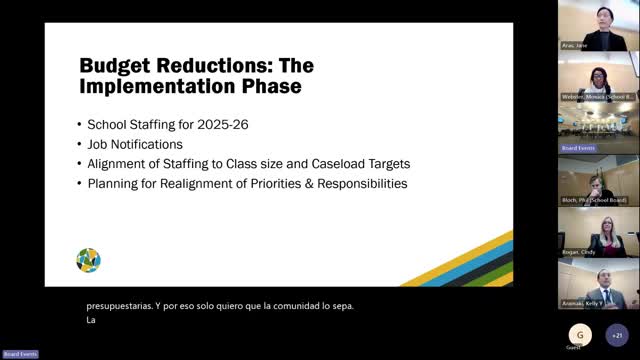Article not found
This article is no longer available. But don't worry—we've gathered other articles that discuss the same topic.
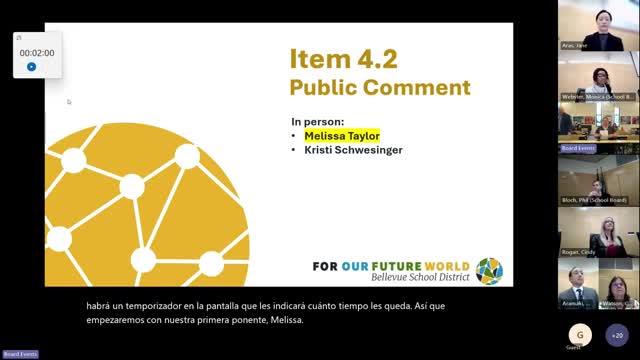
Parents urge ASL bilingual program and raise IEP concerns; teachers and family members urge stronger literacy supports
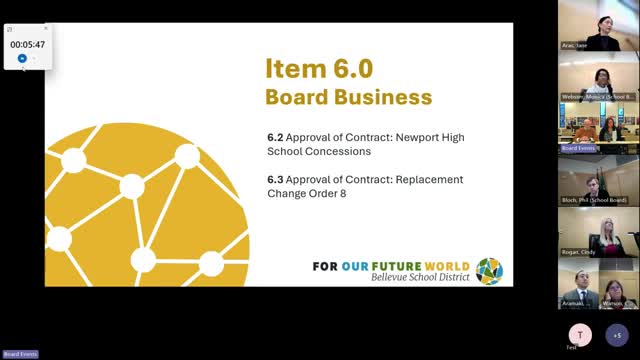
Board awards Newport concessions contract, approves major change order and authorizes sale of 10.11‑acre parcel
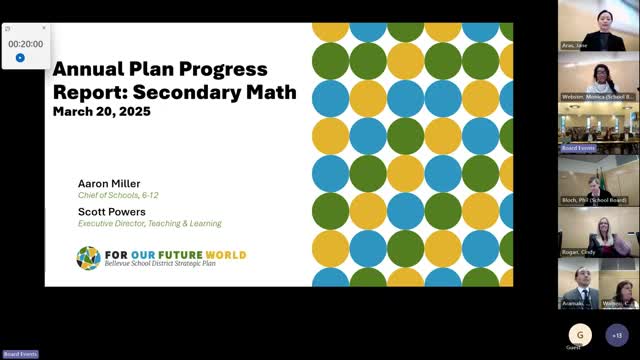
District cites gains in interim math assessments; piloting Algebra 1 support for newcomers and striving learners
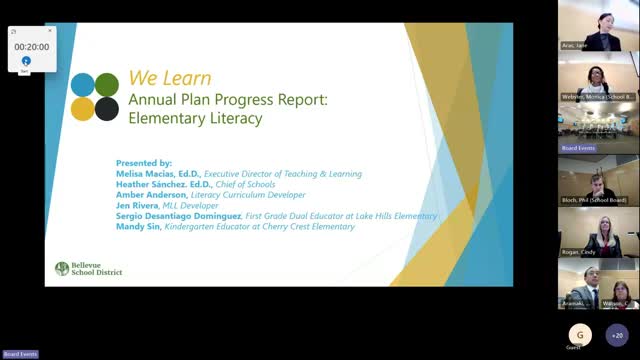
Bellevue reports early gains on K–2 decoding tests amid wider literacy gaps; district stresses implementation and interventions
